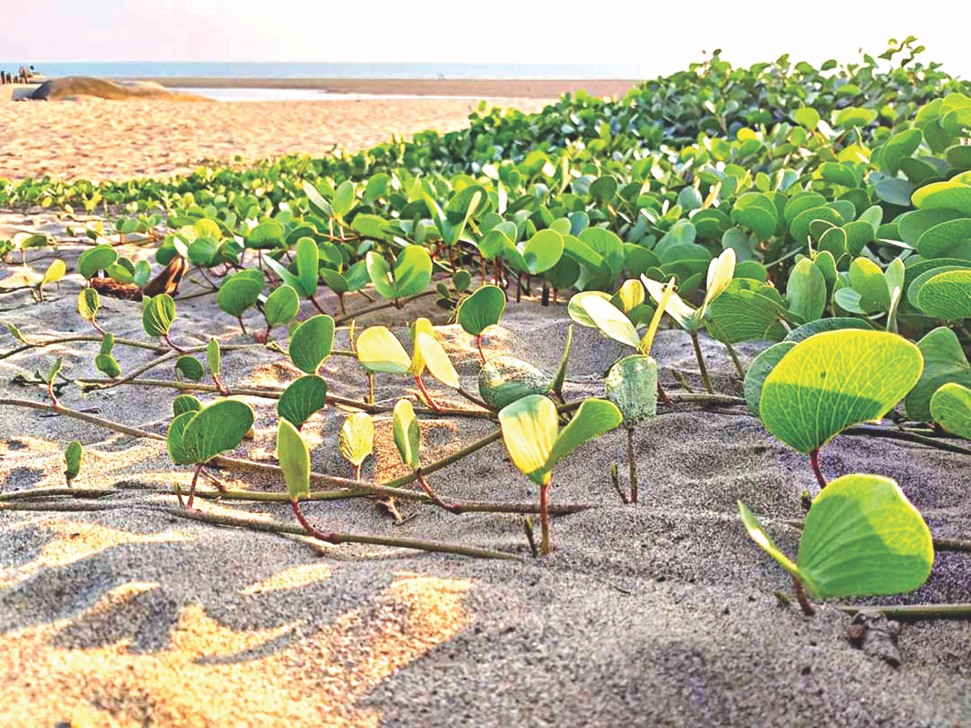Morning glory returns to Cox’s Bazar beach

All it took was a mere few weeks for it to come back to the vast stretch of Cox's Bazar sea beach.
With a ban on tourist movement in place, sagarlata, also known as beach morning glory — a key component of the beach ecology — which had disappeared from parts of Cox's Bazar due to unbridled movement of tourists and construction of structures along the beach, started to grow once again.
The 120-km stretch of the beach laid empty with a tourist ban in place from March 18, making room for the vine to grow rapidly in absence of human activities and reappear at Kolatali, Sugandha and Dorianagar — three important beach areas.
Also known as railroad vine, sagarlata acts as a natural barrier to waves, protecting seashores from erosion.
Ahmed Gias, a resident of Dorianagar who is working to safeguard the beach ecology, told The Daily Star that sagarlata is important to dune erosion control and acts as a shield against natural calamities.
Hotels which were built occupying many dunes in the area destroyed roots of the vine, he said, adding that before no trace of sagarlata could be seen anywhere in Sugandha, Kolatali and Laboni points.
Ibarhim Khalil Mamun, chief executive of Youth Environment Society, said the sprawling vine sprouted at the beach in absence of human activity. "It grows where humans don't tread," he said. The government must take steps to contain movement on the beach, allowing it to breathe.
Dr Kamal Hossen, professor of institute of forestry and environmental science at Chattogram University, said, "It acts as soil binder, helps the seashore fight against strong waves, plays a role as natural shield against erosions and stabilises the beach.". He said due to human disturbance, the plant disappeared from most part of the beach. "The current shutdown created a new hope for the plant. Authorities must think about how to nurture the plant for the overall betterment of environment," Dr Hossen added.
Read More
.

